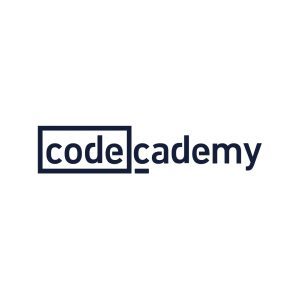HTML
HTML Courses and Certifications
HTML, or Hypertext Markup Language, is the foundational language for creating webpages and applications. For anyone aiming to build or design a website, learning HTML is essential. EdCroma offers a wide range of html courses online, designed to cater to all levels, from beginners to advanced users looking to upgrade their skills. Whether you’re seeking an html full course for comprehensive learning, a quick html and css course, or an html certification free, EdCroma has options to help you master web development at your pace.
Master Version Control to manage and track changes in software development.
Why Learn HTML?
Learning HTML is the first step in web development, as it lays the groundwork for everything else. By mastering HTML, you gain the ability to structure content on the web, create simple or complex layouts, and ultimately build the backbone of a webpage. html courses provide the skills needed to create webpages from scratch, and if combined with CSS and JavaScript, your knowledge becomes even more powerful, allowing for dynamic and engaging websites.
Learn CCNA to understand network fundamentals and Cisco technologies.
Showing 1–12 of 51 results

Build a Website with HTML, CSS, and GitHub Pages
Learn the basics of web development to build your own website.

CS50’s Introduction to Computer Science
An introduction to the intellectual enterprises of computer science and the art of programming.

edX: Video Clip: Overview of HTML/CSS
Learn about HTML and CSS with this clip from the UX/UI Boot Camp.

Front-End Engineer
Front-end engineers work closely with designers to make websites beautiful, functional, and fast.

Google: Google AI for JavaScript developers with TensorFlow.js
Get productive with TensorFlow.js - Google's Machine Learning library for JavaScript. From pre-made off the shelf models to writing or training your own, learn how to create next gen web apps.

HarvardX: CS50’s AP® Computer Science Principles
This is CS50 AP, Harvard University's introduction to the intellectual enterprises of computer science and the art of programming for students in high school, which satisfies the College Board's new AP CS Principles curriculum framework.

HarvardX: Data Science: Wrangling
Learn to process and convert raw data into formats needed for analysis.

How to Deploy a Website
Learn how to publish a website to the Internet with Jekyll, Amazon Web Services (AWS), and GitHub Pages.

How to Make a Website with NameCheap
Explore HTML & CSS fundamentals as you build a website in this introductory web development course.

IBM: Cloud Application Developer Capstone
In this project you will sharpen your new full stack cloud application development skills. You will use modern tools and technologies to create a working cloud ecosystem. You will design and develop a comprehensive solution that reflects your mastery of key cloud native computing concepts and capabilities.

IBM: Developing Front End Apps with React
Gain job-ready front-end skills with React, developers' top choice for client-side programming.

IBM: Guided Project: Build a COVID Dashboard with React V2
In this one-hour, intermediate hands-on guided project, use JavaScript frameworks React.js and Chart.js with APIs to easily create a dynamic single-page app that visualizes data from the COVID-19 Canada Open Data Working Group's API as a dashboard.
HTML and CSS Courses on EdCroma
For those who want to expand their knowledge beyond HTML alone, html css course offerings are an ideal option. These courses teach you both HTML and CSS, providing insights on how to structure a webpage with HTML and style it effectively with CSS. The html css and javascript course options on EdCroma also cover JavaScript basics, equipping you with the ability to add interactive elements to your site. These skills are highly sought after in web development and design, making html and css certification valuable.
Master Software Engineering to design and develop scalable software solutions.
Types of HTML Courses Available
- HTML Courses for Beginners: If you are just starting out, EdCroma’s html basics for beginners and html course for beginners are ideal for building foundational knowledge. These courses start with basic HTML concepts, tags, and document structure, ensuring you understand the essentials before moving on to more advanced topics.
- Comprehensive HTML Full Course: Those interested in an all-encompassing learning experience should consider the html full course on EdCroma. Covering everything from fundamentals to advanced topics, this course is perfect for those looking for thorough training. The html full course free option is a great way to dive deep into HTML without a financial commitment.
- HTML and CSS Free Course with Certificate: Many students prefer learning HTML with CSS, as styling is crucial for a webpage’s visual appeal. EdCroma offers html and css free course with certificate options that help you gain the skills to create beautiful, structured websites. After completing the course, you’ll earn a certificate that proves your proficiency in these essential skills.
- Free Online HTML Course with Certificate: For learners on a budget, EdCroma’s free html course with certificate offerings provide access to quality education without a price tag. This is an excellent option for those looking to learn HTML online at no cost while still obtaining certification.
- HTML Certification and Advanced Programs: If you’re looking to showcase your skills, an html certification free course is available on EdCroma. Certification programs, such as html css certification and html css javascript course certifications, enhance your resume and demonstrate a verified skill set to potential employers.
Study CompTIA certifications for foundational IT skills and career advancement.
Benefits of HTML Courses Online
Learning HTML online provides flexibility and accessibility. EdCroma’s html courses online free options make it easier for anyone to start their web development journey without financial constraints. You can study at your own pace, review concepts as needed, and develop hands-on skills through interactive projects. For those new to web development, learning html for beginners is simplified, with guided modules and projects that provide real-world application.
Master R Programming for statistical computing and data analysis.
What Will You Learn in an HTML Course?
EdCroma’s html language course covers a range of topics necessary for building web pages. Here’s a breakdown of the major areas:
- HTML Basics: Understand the structure of an HTML document, tags, and elements. This includes headings, paragraphs, lists, and links, as well as understanding the importance of attributes and their applications.
- Forms and Media Elements: Learn how to create and format forms, add multimedia elements like images, videos, and audio, and how to incorporate accessibility best practices for inclusivity.
- CSS Integration: Learn how to enhance the visual aspects of a page by pairing HTML with CSS. EdCroma’s learn html css offerings delve into styling methods, color theory, layout design, and positioning. This enables you to create visually appealing websites that captivate users.
- JavaScript Basics: For those taking a combined course like the learn html css and javascript free course, EdCroma introduces fundamental JavaScript concepts, teaching you how to add dynamic elements to your website, such as interactivity and form validation.
Explore Network fundamentals to build and manage effective communication systems.
Top Free HTML Certification Courses on EdCroma
EdCroma provides some of the best html course options, including beginner-friendly modules and advanced certifications. The platform is ideal for those seeking the best html css course and the best html and css course, complete with practical projects, coding challenges, and quizzes to test your understanding. With certifications in html css and javascript, you’ll be well-prepared for career opportunities in web development.
Discover Computer Science Courses to gain a solid foundation in computing principles.
